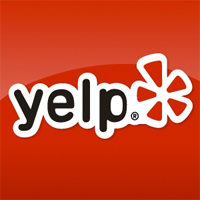Microsoft’s Bing is on a roll…in terms of new partnership announcements, that is. Today, Bing and Yelp are announcing a co-branded relationship that will bring Yelp’s local business content to Bing’s Local search pages. The pages will display “Powered by Yelp,” beginning today with full U.S. availability expected over the next few weeks.
Yelp will bring its reviews, photos, business attributes and more to the Bing search engine, reinvigorating Microsoft’s efforts at taking on Google Place pages, which recently became Google+ Local.
Last month, Google made the move to sunset Google Places in favor of the more social experience provided by Google+. Now, when you go to a web page for Google Places, you will be offered a link through to the new Google+ Local pages, the company said. Or, if you’re the business owner, you will be able to claim your spot in Google’s directory.
But the Yelp + Bing news is notable not only for how it’s taking on Google’s revamped business listings, it also follows what’s been a tempestuous relationship between Yelp and search giant Google. In late 2009, you may remember that Google was considering buying Yelp for half a billion dollars. The following year, tensions between the two companies grew as Google pumped up its Places service with Yelp’s content, sans partnership. (Google decided to simply crawl Yelp’s content and index it.). Later, Google reversed the decision and purged all of Yelp’s reviews from Places, as opposed to formalizing the relationship. And you know how this story ended up? Google just went out and bought Zagat instead, which is now a key part of the Google+ Local experience.
Bing’s move to partner with Yelp comes on the heels of several other agreements which aim to boost the quality of its search results in its never-tiring attempts to take on Google. (Hey, someone has to try, right?) Only Tuesday, Bing made a similar announcement, revealing its new partnership with Qwiki, a video startup that translates text content into video. (You can now “watch” your search results as a video instead of reading them.) And last week, Microsoft announced a partnership with Encyclopedia Britannica to provide quick answers using snippets of knowledge from the encyclopedia’s content. There’s also the granddaddy of all partnerships: Bing’s Facebook integration.
Whether any of these moves will get people to switch engines, however, is doubtful. Google’s name is synonymous with search, and its search engine is the default in the popular Google Chrome web browser, too. Bing’s best bet for a “switch,” is to increase its exposure as Facebook’s default engine and other Facebook integrations, which could direct users over to the new Bing.com without the need for a conscious change in user behavior on their part.
